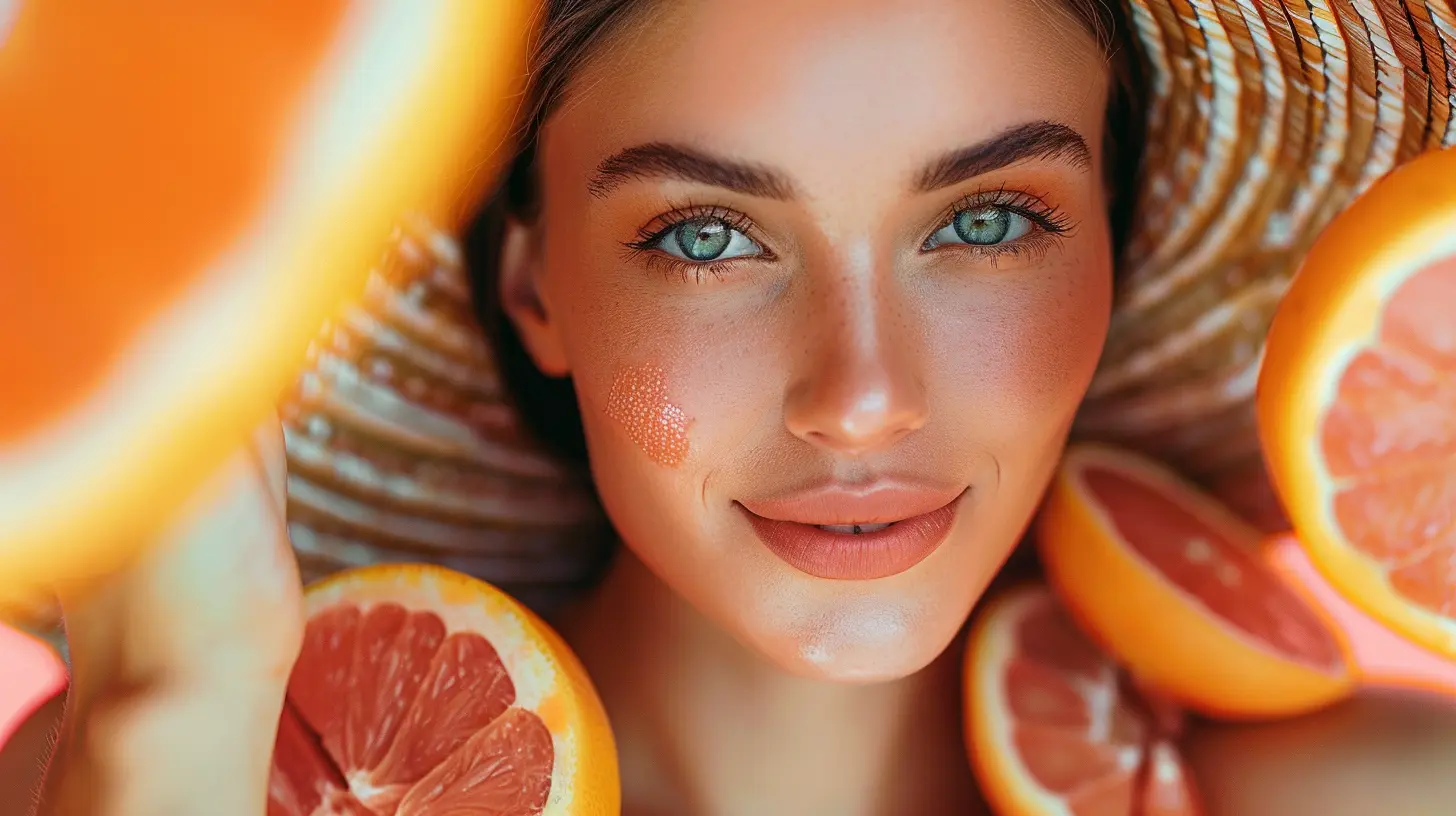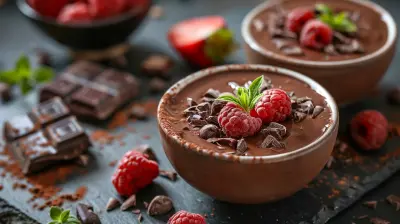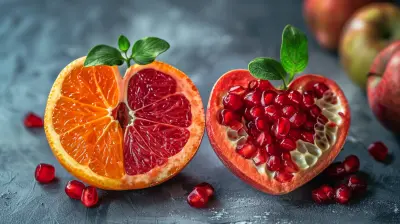How Your Diet Can Help Protect Your Skin from the Sun
26 September 2025
Introduction
We all love spending time in the sun, whether it’s lounging on a beach, hiking outdoors, or just enjoying a sunny day. But while the sun provides essential vitamin D, excessive exposure can wreak havoc on your skin. Sunburn, premature aging, and an increased risk of skin cancer are some of the dangers of overexposure.
Most people rely on sunscreen to protect their skin, but did you know that your diet can also play a crucial role? The food you eat contains powerful nutrients that can boost your skin’s defense against harmful UV rays from within.
In this article, we’ll dive deep into how your diet can help safeguard your skin from sun damage, the best foods to eat, and the science behind their protective properties. 
How the Sun Affects Your Skin
Before we get into the role of diet in sun protection, it’s important to understand how UV rays damage your skin.UV Radiation and Skin Damage
The sun emits ultraviolet (UV) radiation, which is classified into two main types:- UVA Rays: These penetrate deep into the skin, causing premature aging, wrinkles, and DNA damage.
- UVB Rays: These are responsible for sunburn and are a leading factor in skin cancer development.
Excessive exposure to UV rays generates free radicals—unstable molecules that cause oxidative stress, inflammation, and damage to skin cells. Your body has natural antioxidant defenses, but if the exposure is too high, these defenses may be overwhelmed.
That’s where your diet comes in! Certain foods are packed with antioxidants, essential fatty acids, and other nutrients that can help your skin fight back. 
The Role of Diet in Sun Protection
Antioxidants: Your Skin’s Internal Sunscreen
Antioxidants are molecules that neutralize free radicals and reduce oxidative stress. By consuming foods rich in antioxidants, you enhance your skin’s ability to resist UV damage.Some of the most powerful antioxidants for sun protection include:
- Carotenoids (Beta-carotene, Lycopene, Lutein)
- Vitamin C
- Vitamin E
- Polyphenols
Let’s take a closer look at the best foods that offer these sun-protecting nutrients. 
Best Foods for Natural Sun Protection
1. Tomatoes – Rich in Lycopene
Tomatoes are packed with lycopene, a powerful antioxidant that helps reduce UV damage. Studies suggest that consuming tomato-based foods can improve skin’s resistance to sunburn.How to eat it?
- Eat fresh tomatoes in salads.
- Drink tomato juice or make a homemade salsa.
- Cooked tomatoes (like in sauces and soups) increase lycopene absorption.
2. Carrots and Sweet Potatoes – Beta-Carotene Powerhouses
Beta-carotene is a type of carotenoid that helps reduce sunburn by boosting the skin’s natural defense system. It also gives skin a healthy glow!How to eat them?
- Snack on baby carrots.
- Enjoy roasted sweet potatoes with a drizzle of olive oil (which enhances absorption).
- Blend them into smoothies for a nutrient boost.
3. Leafy Greens – Lutein and Zeaxanthin
Spinach, kale, and Swiss chard contain high levels of lutein and zeaxanthin, which help protect against UV damage and improve overall skin health.How to eat them?
- Toss them into salads or smoothies.
- Sauté them with garlic and olive oil.
- Add them to omelets or soups.
4. Citrus Fruits – Vitamin C for Collagen and Repair
Vitamin C is a potent antioxidant that not only protects against free radicals but also aids in collagen production, keeping your skin firm and resilient.Best sources:
- Oranges, lemons, limes, and grapefruits.
- Strawberries, kiwis, and bell peppers are also excellent choices.
Tip: Start your day with a fresh glass of lemon water for a vitamin C boost!
5. Nuts and Seeds – Vitamin E for Skin Protection
Vitamin E is a fat-soluble antioxidant that protects skin cells from UV damage and helps repair damaged tissues.Best sources:
- Almonds, sunflower seeds, hazelnuts, and walnuts.
- Avocados also contain good amounts of vitamin E.
How to eat them?
- Sprinkle nuts on your oatmeal or yogurt.
- Use sunflower seed butter as a spread.
- Eat a handful of almonds as a snack.
6. Fatty Fish – Omega-3s for Skin Resilience
Salmon, sardines, and mackerel are loaded with omega-3 fatty acids, which help reduce inflammation and support the skin’s ability to withstand sun exposure.How to eat them?
- Grill or bake salmon for a delicious meal.
- Add sardines to salads or whole-grain crackers.
- Take a high-quality fish oil supplement if needed.
7. Green Tea – Polyphenols for UV Protection
Green tea is rich in catechins, a type of polyphenol that has been shown to reduce sunburn and UV-related skin damage.How to enjoy it?
- Sip on freshly brewed green tea.
- Use it as a base for smoothies.
- Try matcha for an even more concentrated dose! 
Hydration: Another Key to Sun Protection
Staying hydrated is crucial for maintaining healthy skin. Dehydrated skin is more vulnerable to sun damage and premature aging.Best hydrating foods and drinks:
- Watermelon (packed with lycopene and water content).
- Cucumber and celery (high in water and antioxidants).
- Coconut water (a natural electrolyte boost).
- Plain water (obviously!).
Aim to drink at least 8 glasses of water per day and consume water-rich foods to keep your skin hydrated and resilient against the sun.
Foods to Avoid for Better Sun Protection
While some foods help protect your skin, others can make it more susceptible to sun damage. Here are some to limit:1. Processed and Sugary Foods
Excess sugar can contribute to inflammation and break down collagen, making your skin weaker against UV rays.2. Fried and Fast Foods
These often contain unhealthy trans fats, which can increase inflammation and free radical damage in the skin.3. Alcohol
Too much alcohol dehydrates the skin, making it more prone to sunburn and damage.4. Excessive Caffeine
While moderate coffee and tea consumption is fine, excessive caffeine can lead to dehydration, affecting your skin’s resilience.Final Thoughts
Sunscreen isn’t the only way to protect your skin from the sun. By fueling your body with nutrient-rich foods, you can strengthen your skin’s natural defenses and minimize damage from harmful UV rays.Incorporate antioxidant-rich fruits, vegetables, nuts, and fish into your diet, stay hydrated, and avoid inflammatory foods to keep your skin healthy and radiant. While diet alone won’t replace sunscreen, it acts as an extra layer of defense—think of it as your internal sunscreen!
So, next time you’re planning a beach day, eat smart and nourish your skin from within. Your future self will thank you!
all images in this post were generated using AI tools
Category:
Sun ProtectionAuthor:

Angelo McGillivray
Discussion
rate this article
1 comments
Enid McClellan
Nutrition plays a crucial role in skin protection against sun damage.
October 2, 2025 at 5:05 PM

Angelo McGillivray
Absolutely! A well-balanced diet rich in antioxidants and healthy fats can enhance your skin's resilience against UV damage.


